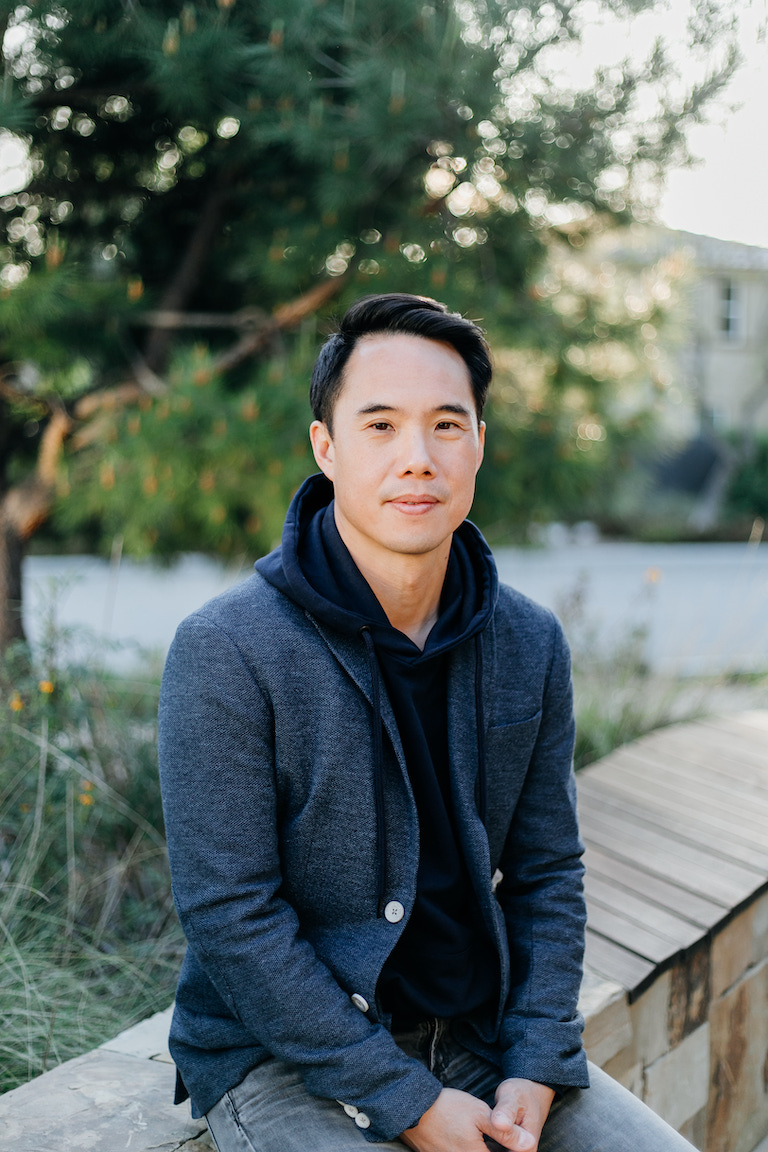Charles Yu, class of ’97, has been widely celebrated in his work as both a novelist and a screenwriter. His latest book, Interior Chinatown, won the 2020 National Book Award for Fiction, was shortlisted for the Le Prix Médicis étranger, and longlisted for the Andrew Carnegie Medal for Excellence in Fiction. Yu was named one of the “5 under 35” honorees by the National Book Foundation in 2007 and he has been nominated for two Writers Guild of America awards for his work on the HBO show Westworld. In addition to this, he has written for shows on FX, AMC and Adult Swim.
Yu’s talents extend across genres, and nowhere is this more clear than in his 2020 novel Interior Chinatown, which melds the conventions of novel and screenplay to tell a story about a young Asian American actor trying to make it in Hollywood. Aspiring to the charisma and star power of someone like Bruce Lee, but always slotted into the generic role of “Kung Fu Guy,” Yu’s protagonist Willis brought to life the struggles of Asian American identity in Hollywood from the perspective of a background actor who never quite makes it to the foreground. The title, Interior Chinatown, compelled readers to consider the rich interiority of a character defined by their part in an industry that, while not fully excluding Asian Americans, assigned them essentially empty roles. Yu’s novel asks: what if we gave a character like this, who traditionally has no independent storyline, his own life, thoughts and storyline? Outside of the honors and prizes Interior Chinatown garnered in the literary world, its impact has been felt on the UC Berkeley Campus. In 2022, Yu participated in a program from the College of Letters and Science at UC Berkeley called “On the Page,” in which all incoming first year and transfer students received a copy of Interior Chinatown. “On the Page,” welcomes new students into the intellectual community of UC Berkeley with a series of events and talks that revolve around a single book. Yu’s visit to campus in Fall 2022 demonstrated the interest and engagement that this compelling work of fiction had stirred in the campus community.
Yu graduated from UC Berkeley in 1997 as an MCB major with a minor in English. We asked him some questions about his time at Berkeley and how the Berkeley English Department impacted his life and prepared him for the start of his career as a writer.
When did you graduate from Berkeley? Did you major or minor in another field as well as English?
1997; also, just to clarify, I was not actually an English major; I was an MCB major and an English minor (Creative Writing)
What do you do now? Is this what you imagined doing as an undergraduate?
Writer (fiction, non-fiction, as well as TV and film)
How did your English coursework prepare you for the start of your career and/or the work you do now?
I took poetry workshops at Berkeley (43B, 143B) and had the chance to work with some of the incredible writers on the faculty (Schweik, Gunn, Hass, Reed). Learning from them, as well as my fellow students, was a deep and lasting experience.
What advice would you give current UC Berkeley English undergraduates? Any life lessons you would like to share? Or any suggestions, for current English majors, about how they might approach their time at Cal or their search for their first job post-graduation?
Berkeley is a special place! Even though it's a lot of work, try to enjoy it. And there's no single career path--in fact, paths only look like paths in retrospect. In the moment, they can feel like wandering or being lost. As long as you have your own internal compass (whatever it is), you can be heading in a worthwhile direction.
What is your favorite memory as an English undergraduate?
Too many to pick just one. But a moment that stands out was in Professor Susan Schweik's 143B workshop, when she gave us an assignment to write about an object of significance. She had brought in a potato masher and told us a story about it and I remember that it was a moment of learning but also very moving--to have a professor share a personal story and to experience that in a small, close-knit group, it opened up something for me as a student and as an aspiring writer.

